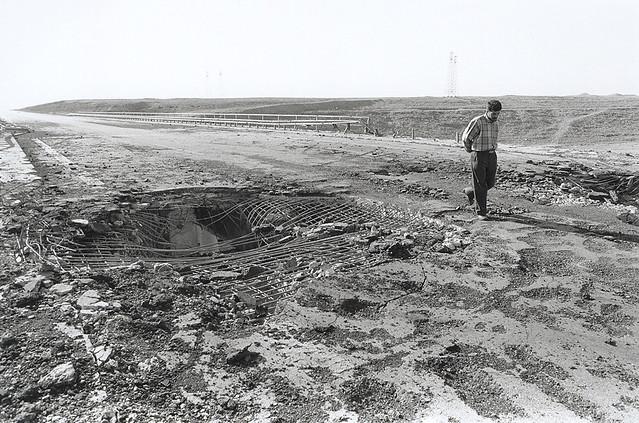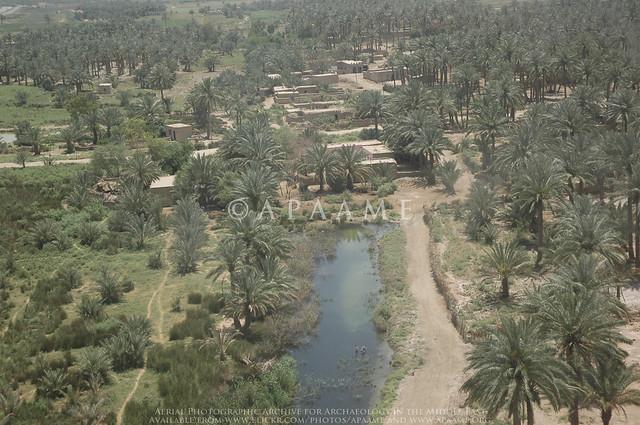Ash Shaţrah
Overview
Overview of Ash Shaţrah
Ash Shaţrah is a vibrant city located in the Dhi Qar province of southern Iraq, steeped in rich cultural heritage and historical significance. Nestled near the ancient ruins of Ur, this city serves as a modern gateway to the remnants of one of the world's earliest civilizations. Travelers will find Ash Shaţrah to be a fascinating blend of contemporary life and historical depth, offering an authentic glimpse into the heart of Iraq's cultural landscape.
Known for its friendly and hospitable residents, Ash Shaţrah exudes an inviting atmosphere that is both warm and engaging. The city's bustling streets are filled with local vendors selling traditional crafts, textiles, and spices. The aroma of freshly baked bread and rich, spiced dishes waft through the air, inviting visitors to explore the diverse culinary offerings. Street food is a must-try here, with local specialties like kebabs and dolma that reflect the region's agricultural bounty and culinary traditions.
Cultural Significance
Ash Shaţrah is a hub of cultural activities, prominently featuring the rich heritage of the Shiite Muslim community. The city hosts numerous festivals throughout the year, where music, dance, and poetry come alive, celebrating both religious and national identities. The local markets, known as souks, are vibrant with life, where artisans display their handmade goods, ranging from pottery to intricate textiles, allowing visitors to witness and participate in the city's artistic expressions.
The history of Ash Shaţrah is intertwined with the legacy of ancient Mesopotamia. Just a short drive away lies the archaeological site of Ur, famous for its ziggurat and considered one of the most important Sumerian cities. This proximity to such significant historical sites makes Ash Shaţrah an ideal base for exploring the rich archaeological landscape of southern Iraq. The remnants of ancient civilizations are not only a testament to the region's past but also serve as a backdrop for the vibrant life that flourishes in the city today.
Historical Context
Ash Shaţrah's historical narrative is marked by its resilience and ability to adapt through centuries of change. The city has witnessed various empires, from the Sumerians to the Ottomans, each leaving a mark on its architecture and culture. Visitors can explore remnants of these influences in the city’s buildings and urban layout, which reflect a blend of ancient and modern styles. The local mosques, with their intricate tile work and serene courtyards, provide peaceful spots for reflection amidst the city's lively pace.
The significance of Ash Shaţrah extends beyond its historical context; it also plays a vital role in the contemporary socio-economic fabric of Dhi Qar. The city's economy is primarily based on agriculture, with the fertile lands surrounding the area yielding a variety of crops, including dates, grains, and vegetables. This agricultural richness contributes to the local cuisine and market culture, where fresh produce is readily available and celebrated.
Local Characteristics
Visitors to Ash Shaţrah will notice the remarkable hospitality of its inhabitants, who take pride in showcasing their culture to foreigners. Engaging with locals can provide enriching experiences, such as participating in traditional tea ceremonies or joining family gatherings that often feature storytelling and music. The sense of community is palpable, and travelers will find that the people of Ash Shaţrah are eager to share their history and traditions.
The landscape surrounding Ash Shaţrah adds to its charm, with the Tigris River nearby offering opportunities for scenic walks and relaxation. The sunsets over the river create breathtaking views that paint the sky in vibrant hues, making it a perfect spot for photography and quiet contemplation. Additionally, the nearby marshlands, recognized as a UNESCO World Heritage site, present a unique ecosystem and cultural heritage of the Marsh Arabs, further enriching the travel experience in this captivating part of Iraq.
Other towns or cities you may like in Iraq
Explore other cities that share similar charm and attractions.






